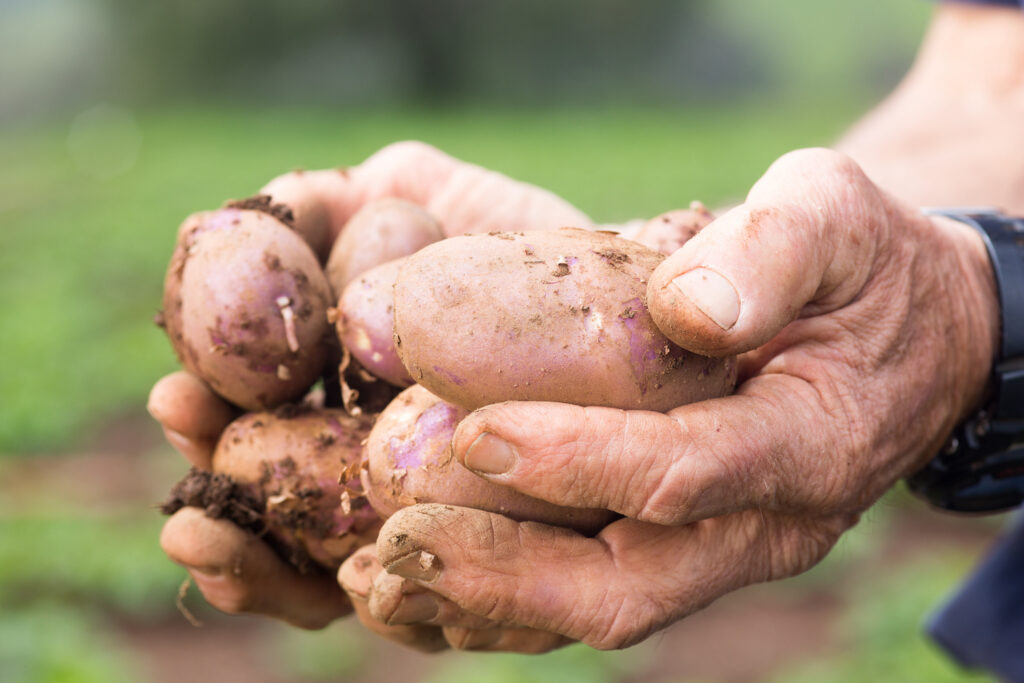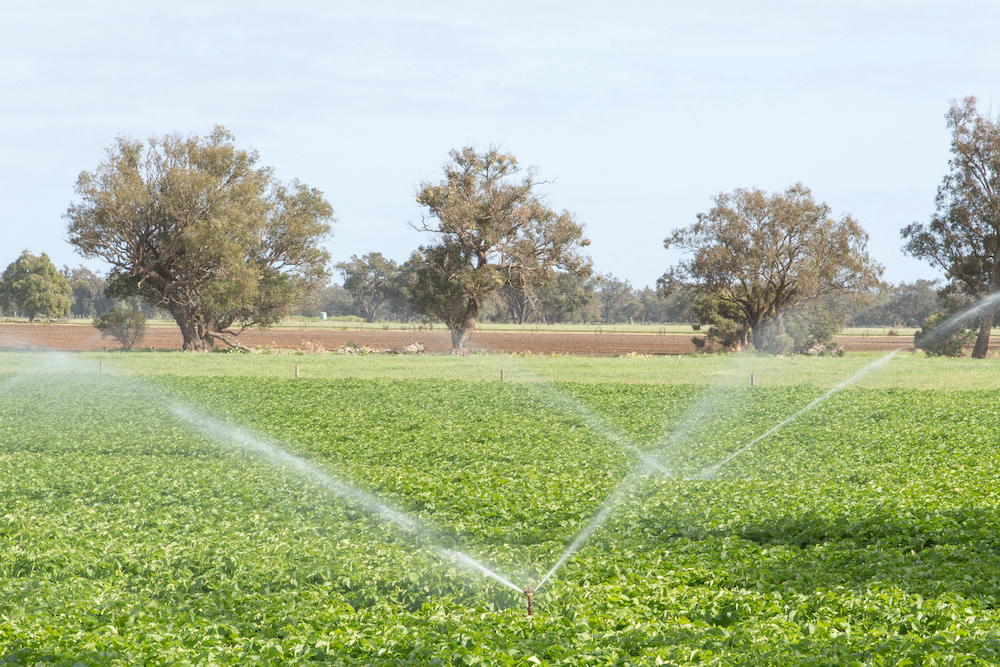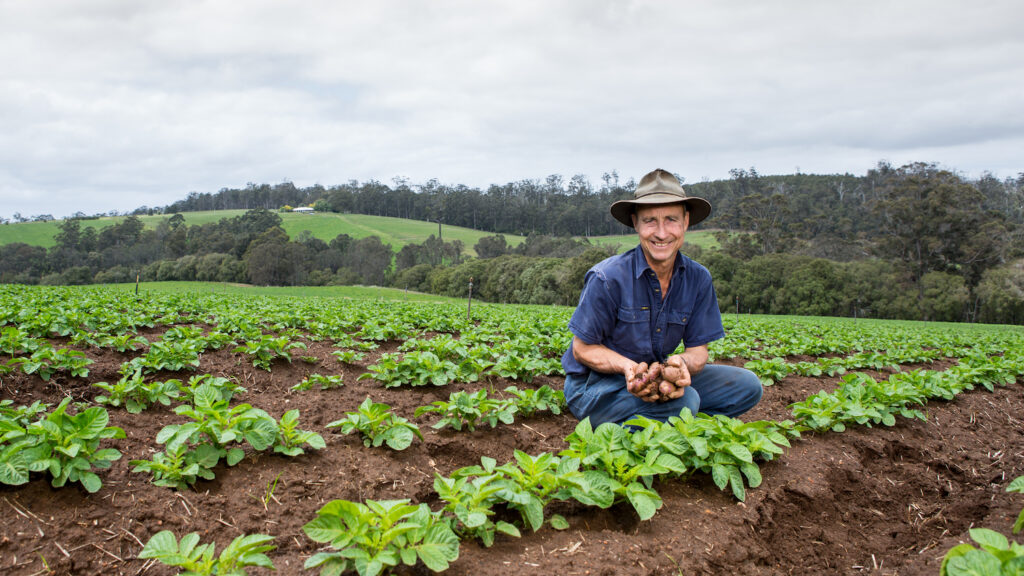
Potatoes are known for being cost-effective, versatile, and nutritious. However, many people are not aware that potatoes are also friendly for the planet.
Potato is the third most important food crop in the world after rice and wheat in terms of human consumption7. More than a billion people worldwide eat potato, and global total crop production exceeds 300 million metric tons. Potato is also critical in terms of food security in the face of population growth1.

A Sustainable Food for the World
James Cook University defines sustainability as the ability to maintain healthy environmental, social and economic systems in balance, indefinitely, on a global and local scale2.
Recent analysis3 of the sustainability of potatoes as a food source, shared by Potatoes New Zealand, has demonstrated that “potatoes score very well on environmental impact, producing less CO2, lower nitrate leaching and requiring less water to produce than legumes, wheat, or rice. Spuds also require less area to grow, and 5kg can be produced in 1m², about ¼ of the area for equivalent in rice and much less than needed to produce a kilogram of legumes.”
The research found that “a large-scale dietary shift towards potatoes, combined with better growing methods, could reduce the greenhouse gas emissions of these staples by up to 25%”.

Indeed, Carbon Brief4 reported in August 2021 that a new study published in Nature Food demonstrated that a dietary shift from rice to potatoes in China, could “notably reduce” the climate and environmental impacts of staple crop agriculture.
More sustainable than rice or pasta?
AUSVEG5 summarised research showing potatoes are good for the environment, with a published paper indicating that potato production is more environmentally sustainable than pasta and rice.
The paper, conducted by researchers from Cranfield University in Bedfordshire, England and published in the Journal of Cleaner Production, considered both greenhouse gas emissions and water consumption when growing the three food types, with potatoes proving to have the least negative impact on the environment.
“The researchers analysed a large amount of data from many sources to produce an accurate estimate on the environmental impact of growing potatoes, pasta and rice, based on their greenhouse gas emissions and water consumption,” said AUSVEG spokesperson Shaun Lindhe.

Potatoes were shown to have the lowest levels of greenhouse gas emissions when compared to both pasta and rice. Potatoes were also shown to have significantly lower levels of overall water usage than rice.
Sustainable farming in WA
In Western Australia, many of our potato growers are embracing innovative and regenerative practises to maintain the integrity of their soil and ensure the sustainability of production for the future.
Quinninup grower Glen Ryan is passionate about potatoes and is concentrating on setting up the soil and soil biology for the upcoming crop.

He will be implementing a range of regenerative practises to reduce use of fertilisers including adding specific biological inputs at certain stages. Cultivating at designated points during the potato plant growth also aids in stimulating microbes, reducing weeds, increasing drainage around the tubers and incorporating any top up fertilisers.
Stronger, healthier plants can ward off disease and pest incursions much more easily. A well developed and extensive root system aids in this, as well as increases its ability to source nutrients and water.
References:
- CIP: https://cipotato.org/potato/
- James Cook University: https://www.jcu.edu.au/tropeco-sustainability-in-action/about/what-is-sustainability
- Potatoes NZ: https://potatoesnz.co.nz/news-info/articles/wpm-special-report-potatoes-a-crucial-and-sustainable-crop/
- CarbonBrief: https://www.carbonbrief.org/dietary-shift-to-potatoes-could-cut-staple-crop-emissions-in-china-by-25
- AUSVEG: https://ausveg.com.au/media-releases/potatoes-more-environmentally-sustainable-than-pasta-rice/


